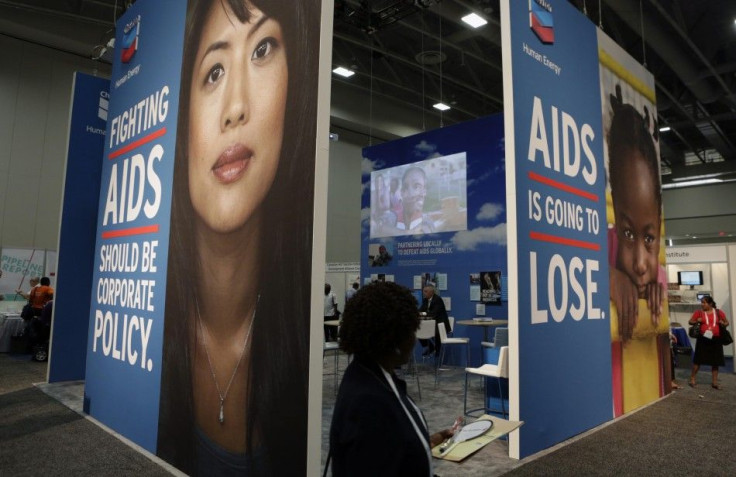HIV Travel Restrictions In 46 Countries Opposed By Top CEOs At 2012 International AIDS Conference

Speaking on the first day of the 2012 International AIDS Conference in Washington, D.C., chief executives from over 20 leading multinational corporations called upon 46 countries to lift travel restrictions on HIV-positive individuals. The business leaders issued a statement calling the restrictions both discriminatory and bad for business.
In today's competitive landscape where global business travel is essential, we need to be able to send our talent and skills where they're needed, said Levi Strauss Chief Executive Chip Bergh. We call on countries with these restrictions to rescind them immediately.
Richard Branson, founder of Virgin Unite, which, according to its website, connects people and entrepreneurial ideas to ... change ... the way government, business and the social sector work together [to make] business ... a force for good, called the travel restrictions blatant discrimination.
Everyone should have a chance to travel freely, he said. Treatment has allowed people with HIV to live fully productive lives, and these laws and policies are downright archaic. I urge governments around the world to repeal their bans and encourage business leaders to join me in taking a stand.
Other corporations with CEOs participating in the campaign include clothing retailers Nordstrom, Inc.; Gap Inc.; and H&M Hennes & Mauritz AB; drug companies Johnson & Johnson; Bristol-Myers Squibb; Gilead Sciences, Inc.; and Merck & Co.; the Coca-Cola Company; and National Basketball Association.
Most HIV-related travel restrictions emerged in the early days of the epidemic, and the CEOs, under the UNAIDS initiative and in partnership with GBCHealth, claim there is no justification for them in the wake of antiretroviral therapy.
Michel Sidibé, Executive Director of UNAIDS, argued that there is, no evidence that these restrictions protect public health.
People living with HIV should have equal access to opportunity and freedom of movement in today's globalized world, he added.
The United Nations believes 34-million people are living with HIV/AIDS, and it claims 1.7 million died from the disease in 2011.
Though UNAIDS counts 46 countries, territories and areas that enforce restrictions, each has different policies. Some deny short-term stays like business trips, while others deny residency or longer term stays, such as study abroad, diplomatic and consular postings. Five countries, meanwhile, bar the entry of people with HIV for any length of stay, and twenty others deport individuals once their HIV infection is discovered, according to UNAIDS findings.
Armenia, Fiji, Namibia, Ukraine and the Republic of Moldova are among the most recent nations to lift travel bans or restrictions for HIV-positive individuals, while the Republic of Korea hosted an event Sunday in and effort to end its restrictions.
Roughly 30,000 top AIDS researchers, diplomats, politicians and stakeholders have assembled in Washington for the six-day International AIDS Conference. The biennial gathering takes place in the United States for the first time in 22 years, an occasion made possible after U.S. President Barack Obama lifted the U.S. ban on HIV travelers in 2010.
Among the speakers scheduled to appear are Secretary of State Hilary Clinton, former president Bill Clinton, former first lady Laura Bush, musician Elton John and Microsoft co-founder Bill Gates.
© Copyright IBTimes 2025. All rights reserved.






















